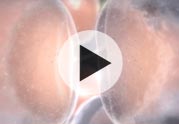Some kinds of chemotherapy (chemo) can damage the cells that line your digestive tract. This damage can cause loose, watery bowel movements known as diarrhea. Diarrhea is a common side effect of many types of chemo. Tell your doctor and care team if you have diarrhea for an extended length of time.
Consequences of Diarrhea
Be sure to speak with your doctor and care team if you have diarrhea during chemo. Your doctor will choose how best to manage it.
Persistent diarrhea can lead to:
- Dehydration: Loss of too much water from the body.
- Electrolyte imbalance: Diarrhea can cause some salts, called electrolytes, in your body to get too low. When levels of the electrolyte sodium get too low, it's called hyponatremia. If the electrolyte potassium does, it's called hypokalemia. Too low or too high levels of these electrolytes may be dangerous. Severely low levels of sodium, for instance, can cause confusion and may lead to coma. Severely low potassium levels can affect muscle function and may lead to muscle weakness, spasms, or paralysis. Talk to your doctor about the symptoms of sodium and potassium imbalance.
- Malnutrition: Not getting enough vitamins, minerals, and calories in the body because diarrhea impairs the body's ability to absorb nutrients.
Diet and Fluids
Ask your doctor and care team to recommend a diet to prevent diarrhea. You may want to see a nutritionist to help guide you. Ask your doctor for a referral.
Making changes to your diet may help:
- Avoid greasy, spicy, or fried foods
- Avoid milk and dairy products
- Avoid high-fiber foods that may be difficult to digest
- Limit your diet to simple, easy-to-digest foods: For instance, bananas, rice, applesauce, toast (called the BRAT diet), and clear liquids may help if diarrhea is not severe.
- Stay hydrated: Give your body plenty of liquids. Sports drinks or electrolyte-infused water can help replace electrolytes that are lost when you have diarrhea.
- Talk to your doctor and care team: Ask about other ways you can manage diarrhea.
Medication Therapy
Even over-the-counter medicines may be stronger than you need to control diarrhea. Ask your healthcare provider about whether you will benefit from anti-diarrheal medication.
Ask Your Doctor:
| Print this worksheet |
|
A Closer Look: Rafael*
 |
|---|
| Rafael is 64 years old. He is being treated for colon cancer with adjuvant chemo after surgery. |
| Rafael often has diarrhea between chemo sessions. He manages it with a diet created by his doctor and nutritionist. |
| His doctor prescribes medications to help control his diarrhea. |
| Rafael has severe cramps and diarrhea that will not stop. He calls his doctor right away and is hospitalized. |
| He is given fluids and treatment. His cramps and diarrhea are treated with medications that greatly improve his symptoms. |
| He is able to complete his chemo regimen. |
*This is a fictional case study based on chemo patient experiences. Your experience is unique. Your doctor and care team will create a plan that will best treat your type of cancer and manage your chemo side effects.
-
The Chemotherapy and Infection Discussion Guide can help you understand your
risk of infectionInfection can be a serious side effect of strong chemo. Find out the factors that affect your risk of infection. Simply answer a few questions, and then print your results to share with your doctor.
Use the Chemotherapy and Infection Discussion Guide to find out more.

 Enlarge
Enlarge Email
Email Print
Print